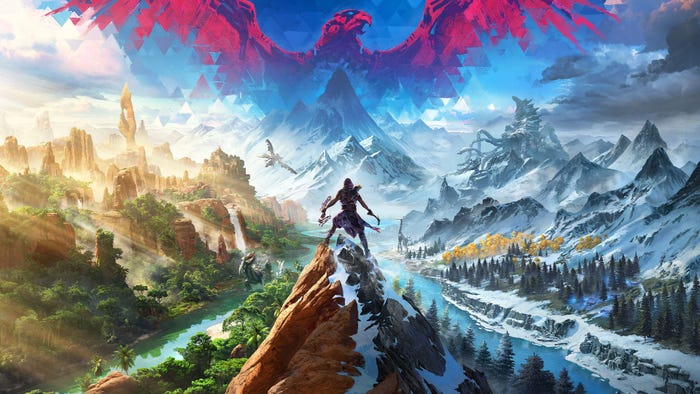
Featured Blog | This community-written post highlights the best of what the game industry has to offer. Read more like it on the Game Developer Blogs.
Video Games Are Not For Kids
As the Supreme Court prepares to rule on Schwarzenegger v. EMA, it's time to face the simple fact that the majority of video games are not made for children and it is the job of parents, not our government, to take that responsibility.

On November 2nd, the Supreme Court will preside over Schwarzenegger v. EMA, the so-called ‘violent video games’ case. This landmark case will decide whether or not California has the right to ban the sale of some games. It could decide, however, that the constitution holds and that ESRB ratings carry the same amount of credibility as do movie ratings.
Do we really even need to argue these points? Video games are not for kids. A quick look at the ESRB ratings of the Top 75 games of all time, according to Metacritic, reveals that the majority of games are rated T for Teen or M for Mature. Of the 75 titles listed, 31 of them were rated M(Mature) and 25 were rated T(Teen). In comparison, 19 were rated E(Everyone), only three were rated E10+ and one, Grand Theft Auto: San Andreas, was rated for Adults Only. For those who are unaware, this means that only 22 of 75 games could be sold to anyone under the age of 13. The majority of the “E”-rated games were sports games. What this means to the industry and gamers is that the best-made and most popular games belong to mature audiences. They’re not made for children. They were never meant to be in the hands of children.
Whenever there is a violent crime among children and teens, the knee-jerk reaction is to blame video games. And yet, according to the ESRB, these games should not even be in the hands of children. If they are, parents are to blame. The stores can’t sell them to a child, so who is making the purchase?
And yet, the same people who wish to ban artistic expression through games pay little attention to what they allow their children to read or watch on television. It is probable that little attention is paid to the cartoons our children are watching. The X-Men cartoon series, for instance, is filled with prejudice, name-calling, sexual innuendo, and threats of violence.
Looney Toons and even some Disney movies are also filled with sexual innuendo. The argument is that young viewers don’t catch the things that are put in place in these shows to make it palatable for the adults in the house. This may be true, but the fact remains that parents are not censoring what they allow their children to watch. Who Framed Roger Rabbit was only rated PG and yet it dealt with overt sensuality and murder. Tiny Toons Adventure: How I Spent My Vacation dealt with the issues of bigamy and shot-gun weddings. It is not even rated. Standard television, cable and even the evening news are rife with violence and violent images and yet our nation’s children are often exposed to all of these with little thought.
Books don’t even carry a rating. Parents may pay little attention to the books their children are picking up and reading. And, while the violent and sexual images may merely fuel the imagination, books continue to be considered better than movies precisely because of this distinction. If movies and games fill our heads with images, books are the gateway drug. I would never advocate censorship of books. I’m merely pointing out that, of all of the media we allow to fuel the imaginations of our children, this one has got to be the least monitored and it’s the one almost completely without any form of warning system for adults.
We use ratings for a reason. ESRB ratings let parents, and retail suppliers, know at a glance who should be playing our games. If we are to start letting our government decide what images we are allowed to see and what stories we are allowed to read, what is to stop us from returning to the Puritan society of the 16th and 17th centuries? That is ridiculous, I know. It could never happen. But, letting the government control our art is just as absurd.
Read more about:
Featured BlogsAbout the Author(s)
You May Also Like








